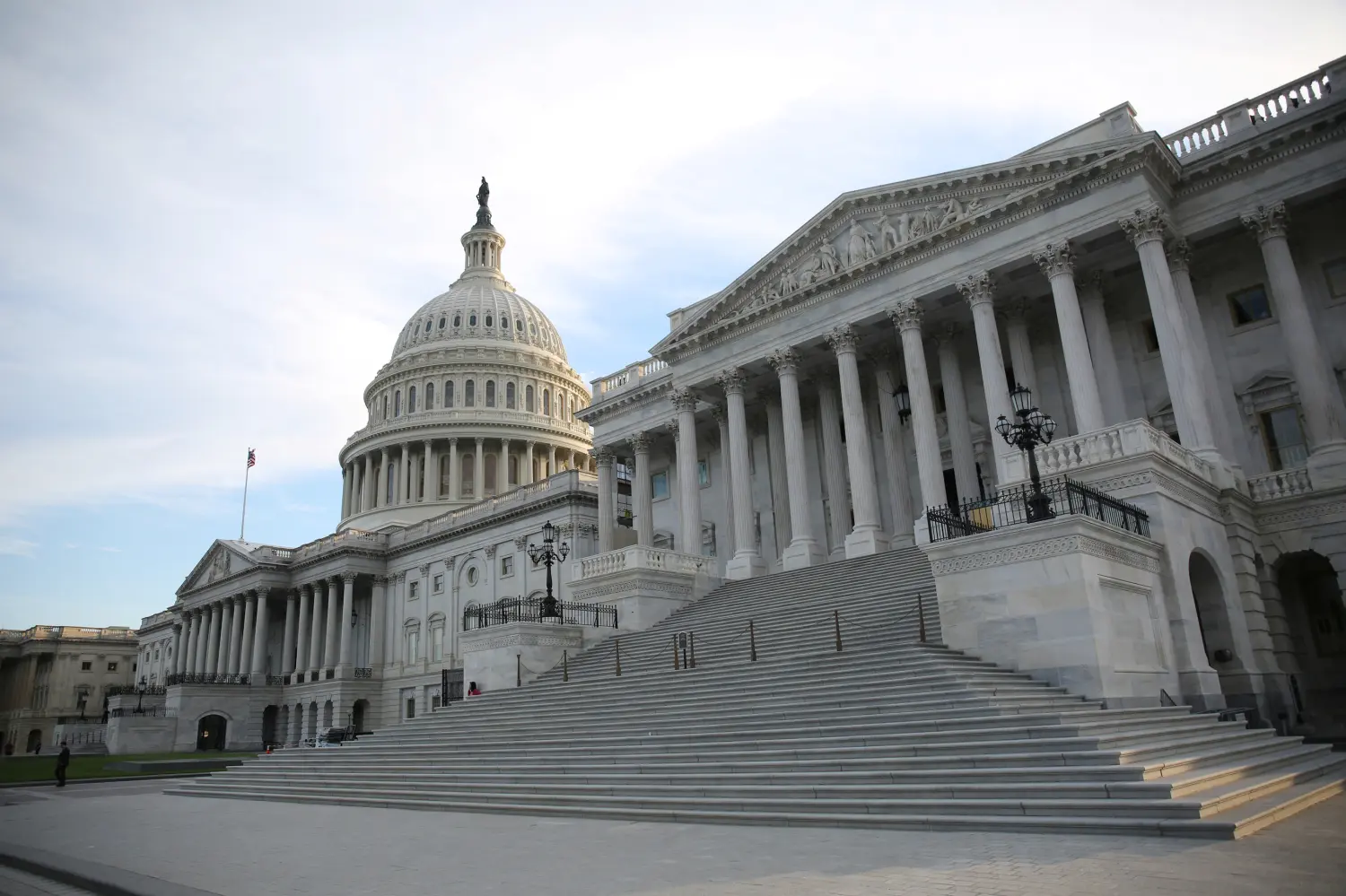Headlines
COVID-19: 60 Million People Likely to Go into Extreme Poverty – World Bank

The World Bank Group has again raised an alarm that the growing impact of the coronavirus pandemic on the global economy and shutdown of many advanced economies could push as many as 60 million people into extreme poverty.
The World Bank Group President, David Malpass, said the situation erases much of the recent progress recorded in poverty alleviation around the world.
He said these prospects were what compelled the World Bank Group to move swiftly and decisively to establish emergency response mechanisms that allow donor groups and organisations to rapidly expand help programmes in 100 countries, home to 70 per cent of the world’s population.
To return to the path of global economic growth, Mr Malpass said the group’s goal must be rapid and flexible to tackle the health emergency.
He said the objective must also be to provide cash and other expandable support to protect the poor, maintain the private sector, and strengthen economic resilience and recovery.
Since March, the World Bank said, it delivered record levels of support to help countries protect the poor and vulnerable, reinforce health systems, maintain the private sector and bolster economic recovery.
“This assistance, the largest and fastest crisis response in the Bank Group’s history marks a milestone in implementing the Bank Group’s pledge to make available $160 billion in grants and financial support over a 15-month period to help developing countries respond to the health, social and economic impacts of COVID-19 and the economic shutdown in advanced countries,” it said on Tuesday.
Of the 100 countries, 39 are in Sub-Saharan Africa, with nearly one-third of the total projects located in fragile and conflict-affected situations, such as Afghanistan, Chad, Haiti, and Niger.
The group said the International Finance Corporation (IFC) and the Multilateral Investment Guarantee Agency (MIGA) have also fast-tracked support to businesses in developing countries, including trade finance and working capital to maintain private sectors, jobs and livelihoods.
Mr Malpass said the group’s support through grants, loans and equity investments would be supplemented by the suspension of bilateral debt service, as endorsed by the bank’s governors.
The eligible countries for International Development Agencies (IDA) that request a forbearance on their official bilateral debt payments, the World Bank President said, would have more financial resources to respond to the COVID-19 pandemic and fund critical, life-saving emergency responses.
“The bilateral debt-service suspension being offered will free up crucial resources for IDA countries to fund emergency responses to COVID-19,” Mr Malpass said.
“Nations should move quickly to substantially increase the transparency of all their governments’ financial commitments. This will increase the confidence in the investment climate and encourage more beneficial debt and investment in the future.”
The group’s operations in 100 countries aim to save lives, protect livelihoods, build resilience, and boost recovery by strengthening health systems, monitoring and prevention, particularly in low-income countries and in fragile and conflict-affected situations.
The health response programmes address emergency containment and mitigation needs for COVID-19, including strengthening countries’ health systems to treat severe cases and save lives.
The group also establishes and supports efforts in fragile and conflict-affected situations as a priority, given the rapidly growing number of cases in some of these countries.
The World Bank President said disbursement of financial supports are already ongoing to Senegal ($20 million) and Ghana ($35 million) including funding to strengthen disease surveillance systems, public health laboratories, and epidemiological capacity for early detection.
Again, the bank is also leveraging countries’ existing social protection systems to help families and businesses restore income, preserve livelihoods, and compensate for increasing prices and unexpected medical expenses.
These safety nets are needed to augment with safe, direct food distribution, accompanied by key information on nutrition, social distancing, and hygiene.
Premium Times
Headlines
Tinubu Nominates Ibas, Dambazau, Enang, Ohakim As Ambassadors

President Bola Tinubu has nominated Ibok-Ete Ekwe Ibas, the immediate past sole administrator of Rivers State and a former Chief of Naval Staff, as a non-career ambassador.
Tinubu also nominated Ita Enang, a former senator; Chioma Ohakim, former First Lady of Imo State; and Abdulrahman Dambazau, former Minister of Interior and ex-Chief of Army Staff, as non-career ambassadors.
Headlines
US Moves to Impose Visa Restrictions on Sponsors, Supporters of Violence in Nigeria

The United States Department of State on Wednesday announced that it is outlining new measures to address violence against Christians in Nigeria and other countries.
The policy, according to a statement released by the department, targets radical Islamic terrorists, Fulani ethnic militias, and other actors responsible for killings and attacks on religious communities.
“The United States is taking decisive action in response to the mass killings and attacks on Christians carried out by radical Islamic terrorists, Fulani militias, and other violent groups in Nigeria and beyond,” said Secretary of State Marco Rubio in a statement.
According to the statement, a new policy under Section 212(a)(3)(C) of the Immigration and Nationality Act allows the State Department to restrict visas for individuals who have “directed, authorised, significantly supported, participated in, or carried out violations of religious freedom,” and, when appropriate, extend those “restrictions to their immediate family members.”
The briefing, led by House Appropriations Vice Chair and National Security Subcommittee Chairman Mario Díaz-Balart, included members of the House Appropriations and House Foreign Affairs Committees, as well as religious freedom experts.
Participants included Representatives Robert Aderholt, Riley Moore, Brian Mast, Chris Smith, US Commission on International Religious Freedom Chair Vicky Hartzler, Alliance Defending Freedom International’s Sean Nelson, and Dr Ebenezer Obadare of the Council on Foreign Relations.
President Bola Tinubu recently approved Nigeria’s delegation to the new US–Nigeria Joint Working Group, formed to implement security agreements from high-level talks in Washington led by National Security Adviser Nuhu Ribadu.
The move follows growing concerns over terrorism, banditry, and targeted attacks on Christians in Nigeria, prompting increased US scrutiny and warnings about the protection of vulnerable faith communities.
On November 20, the US House Subcommittee on Africa opened a public hearing to review Trump’s redesignation of Nigeria as a Country of Particular Concern, placing the country under heightened scrutiny for alleged religious-freedom violations.
Lawmakers examined the potential consequences of the designation, which could pave the way for sanctions against Nigerian officials found complicit in religious persecution.
The Punch
Headlines
Alleged Christian Genocide: US Lawmakers Fault Tinubu’s Govt

United States of America lawmakers have sharply contradicted the Nigerian government’s position on the ongoing massacres in the country, describing the violence as “escalating,” “targeted,” and overwhelmingly directed at Christians during a rare joint congressional briefing on Tuesday.
The closed-door session – convened by House Appropriations, Vice Chair Mario Díaz-Balart, as part of a Trump-ordered investigation – examined recent killings and what Congress calls Abuja’s “deeply inadequate” response.
President Trump has asked lawmakers, led by Reps. Riley Moore and Tom Cole, to compile a report on persecution of Nigerian Christians and has even floated the possibility of U.S. military action against Islamist groups responsible for the attacks.
At the briefing, Vicky Hartzler, chair of the U.S. Commission on International Religious Freedom, warned that “religious freedom [is] under siege” in Nigeria, citing mass abductions of schoolchildren and assaults in which “radical Muslims kill entire Christian villages [and] burn churches.” She said abuses were “rampant” and “violent,” claiming Christians are targeted “at a 2.2 to 1 rate” compared with Muslims.
While acknowledging Nigeria’s recent move to reassign 100,000 police officers from VIP protection, Hartzler said the country is entering a “coordinated and deeply troubling period of escalated violence.” She urged targeted sanctions, visa bans, asset freezes and tighter conditions on U.S. aid, insisting Abuja must retake villages seized from Christian communities so displaced widows and children can return home.
The strongest rebuke came from Dr. Ebenezer Obadare of the Council on Foreign Relations, who dismissed Abuja’s narrative that the killings are not religiously motivated. He called the idea that extremists attack Muslims and Christians equally a “myth,” stressing the groups operate “for one reason and one reason only: religion.” Higher Muslim casualty figures, he argued, reflect geography, not equal targeting.
Obadare described Boko Haram as fundamentally anti-democratic and accused the Nigerian military of being “too corrupt and incompetent” to defeat jihadist networks without external pressure. He urged Washington to push Nigeria to disband armed religious militias, confront security-sector corruption and respond swiftly to early warnings.
Sean Nelson of ADF International called Nigeria “the deadliest country in the world for Christians,” claiming more Christians are killed there than in all other countries combined and at a rate “five times” higher than Muslims when adjusted for population. He said extremists also kill Muslims who reject violent ideologies, undermining Abuja’s argument that the crisis is driven mainly by crime or communal disputes.
He pressed for tighter oversight on U.S. aid, recommending that some assistance be routed through faith-based groups to avoid corruption. Without “transparency and outside pressure,” he said, “nothing changes.”
Díaz-Balart criticised the Biden administration’s reversal of Trump’s designation of Nigeria as a “country of particular concern” in 2021, saying the decision had “clearly deadly consequences.” Lawmakers from the Appropriations, Foreign Affairs and Financial Services committees signaled further oversight actions as they prepare the Trump-directed report.
Hartzler pointed to recent comments by Nigeria’s Speaker of the House acknowledging a “coordinated and deeply troubling period of escalated violence,” calling it a rare moment of candor. She also welcomed the redeployment of police officers as “a promising start after years of neglect.”
But she stressed that these gestures are far from sufficient, insisting the Nigerian government must demonstrate a real commitment to “quell injustice,” act swiftly on early warnings, and embrace transparency.
The Nigerian Embassy did not immediately respond to a request for comment, according to source.






